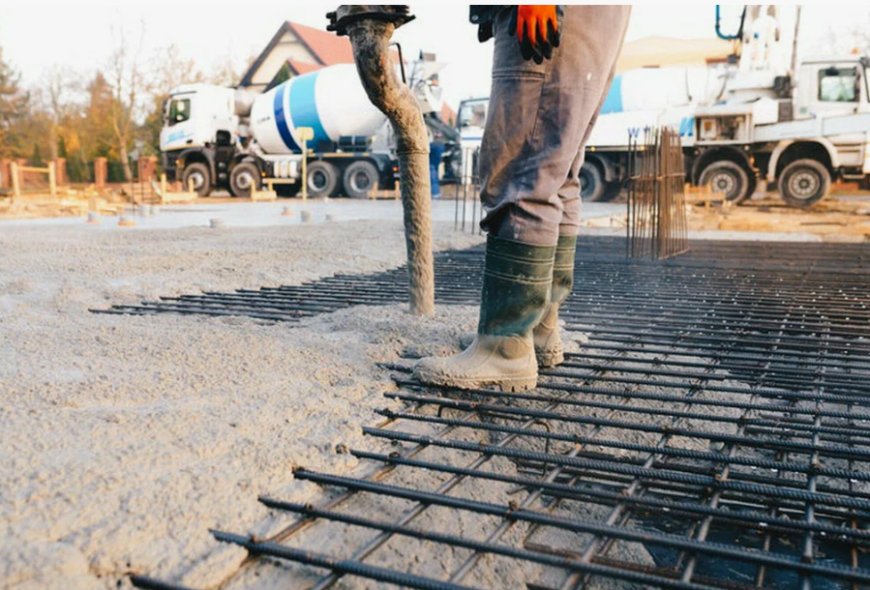Common Mistakes to Avoid in Commercial Foundation Repair
Learn the top errors building owners make when dealing with foundation problems and how to avoid them.F

The foundation of a commercial building is one of its most important structural components. When issues arise, they can threaten not just the building's integrity, but also the safety of those inside and the future of your business. Thats why understanding the process of commercial foundation repair is critical. Whether you're a business owner, property manager, or investor, having a basic knowledge of how foundation issues develop and what repair options are available can save time, money, and stress in the long run.
This blog will walk you through everything you need to knowfrom signs of foundation problems to repair methods and how to choose the right contractor.
What Causes Foundation Problems in Commercial Buildings?
Commercial foundations are generally built to last, but several factors can cause them to shift or deteriorate over time. Soil movement, water intrusion, poor construction practices, or seismic activity can all impact the stability of a structure. Tree roots and plumbing leaks can also lead to foundational shifts, especially in areas with clay-rich soils.
Understanding the root cause of the damage is the first step in planning an effective commercial foundation repair. An inspection by a structural engineer or foundation expert can help identify these issues early and recommend the right course of action.
Common Signs of Foundation Damage
Spotting foundation problems early can prevent expensive repairs down the line. Look out for signs such as:
-
Cracks in walls or floors
-
Uneven or sloping floors
-
Sticking doors and windows
-
Gaps between walls and ceilings
-
Visible foundation movement or settling
These warning signs shouldnt be ignored. If you notice any of them in your commercial building, its a good idea to consult a professional for a full assessment. Prompt commercial foundation repair can save you from larger structural failures in the future.
Methods Used in Commercial Foundation Repair
There are several repair methods depending on the type and extent of the damage:
-
Piering (Underpinning): Steel or concrete piers are driven deep into the ground to support and lift the foundation.
-
Slab Jacking: A concrete mixture is pumped under the slab to raise and level it.
-
Soil Stabilization: Involves injecting substances to strengthen loose or shifting soil beneath the foundation.
-
Waterproofing Systems: Used to prevent further water damage that could lead to foundation issues.
Each method has its benefits and is chosen based on a buildings specific needs. An experienced contractor will suggest the most efficient solution tailored to your situation.
Choosing the Right Commercial Foundation Repair Contractor
Selecting a trustworthy and experienced contractor is essential. Always look for:
-
Proper licensing and insurance
-
Positive customer reviews and references
-
Experience with commercial projects
-
Detailed inspection and transparent estimates
-
Warranty or guarantee on work performed
Avoid choosing solely based on price. Quality commercial foundation repair can be an investment, but cutting corners can cost you much more in the future.
Cost Factors Involved in Foundation Repairs
The cost of fixing a commercial foundation can vary widely depending on several factors:
-
Extent of the damage
-
Type of foundation (slab, crawl space, etc.)
-
Repair method used
-
Accessibility of the site
-
Labor and material costs in your area
On average, commercial foundation repairs can range from a few thousand dollars to tens of thousands. A proper inspection will help estimate the accurate cost for your specific building and condition.
Preventative Maintenance Tips
Preventing foundation problems is always better than dealing with costly repairs. Here are a few maintenance tips:
-
Keep the soil around your building properly wateredneither too wet nor too dry
-
Repair plumbing leaks promptly
-
Maintain proper drainage systems to divert water away from the building
-
Inspect your foundation regularly for small cracks or signs of shifting
-
Schedule annual inspections by a professional
By following these steps, you can extend the lifespan of your foundation and minimize the need for major commercial foundation repair.
FAQs
Q1: How long does a commercial foundation repair take?
A: It depends on the extent of the damage and the repair method used. Minor repairs may take a few days, while major structural work can last several weeks.
Q2: Is it safe to operate my business during repairs?
A: In many cases, yesbut it depends on the severity of the issue. Your contractor will assess whether its safe to continue operations during the repair process.
Q3: Are these repairs permanent?
A: Reputable repair methods like piering or soil stabilization are designed to be long-lasting. Most companies offer warranties for added peace of mind.
Q4: Will my property value drop if Ive had foundation repair?
A: Not necessarily. In fact, properly documented commercial foundation repair can reassure potential buyers that the problem was resolved professionally.
Q5: Can foundation problems come back after being repaired?
A: If the root cause (like poor drainage or soil movement) is not addressed, issues may return. Thats why preventative measures are crucial.
Conclusion
Commercial foundation repair is a significant but essential investment for maintaining the safety and longevity of your building. By recognizing the signs early, choosing the right repair method, and working with experienced professionals, you can protect your property from long-term damage. Dont wait for minor issues to turn into major structural concernsschedule a foundation inspection today and take proactive steps to preserve your commercial asset.





































